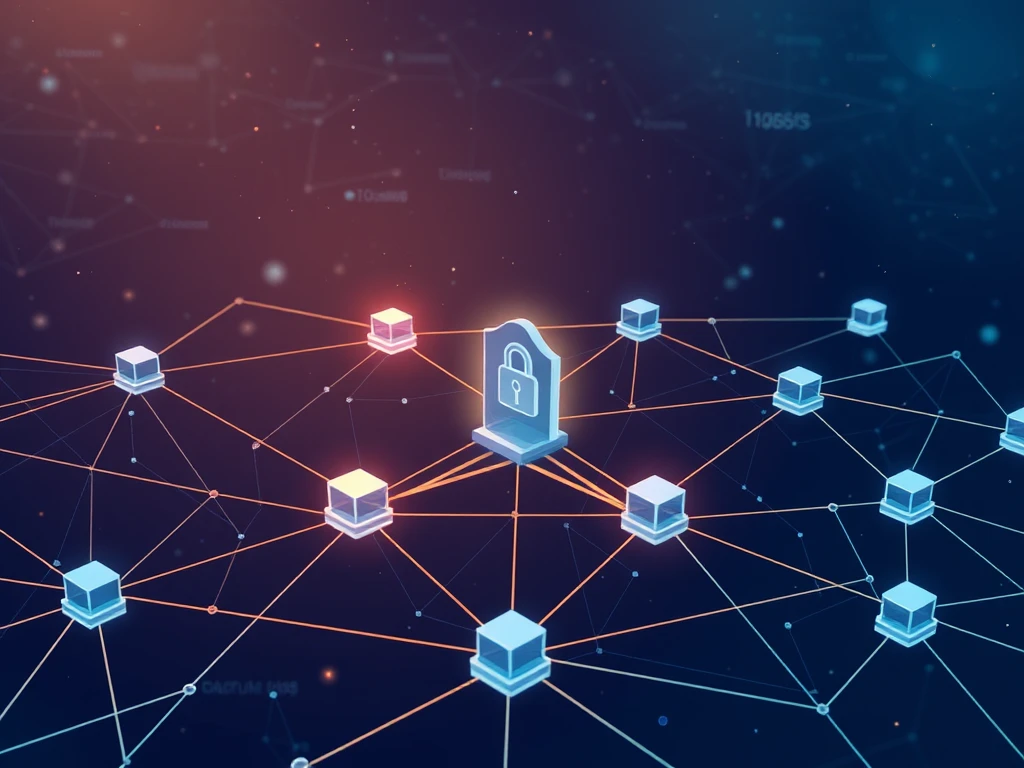Urgent: Lido DAO Votes on Compromised Crypto Oracle

The Lido DAO, the governing body behind the Lido liquid staking protocol, has initiated an urgent emergency vote. This critical action comes in response to a security incident involving a key piece of infrastructure: a crypto oracle.
What Happened with the Compromised Crypto Oracle?
The incident involves an oracle operated by Chorus One. Oracles are vital bridges that connect off-chain data, like asset prices, to blockchain systems. According to Lido DAO members, an address associated with the Chorus One oracle was compromised, resulting in the draining of its Ether (ETH) balance.
Lido Finance has clarified that the issue is confined to the specific Chorus One oracle and is not a broader system-wide problem affecting the entire Lido protocol. They also stated the issue was not due to a coding flaw within any blockchain oracle software itself.
Chorus One believes the exploit likely stemmed from a hot wallet private key leak. In response, they are setting up new infrastructure to enhance security moving forward. The emergency vote initiated by the Lido DAO aims to address this compromised oracle directly, likely involving swapping it out or implementing other mitigation measures. The vote is expected to close within several days, while the investigation into the compromise continues.
Why Robust DeFi Security is Non-Negotiable
This event starkly highlights the critical importance of robust DeFi security measures. As financial and business systems increasingly move onto blockchain, they create larger and more complex digital attack surfaces. Decentralized finance protocols, managing significant value, are prime targets for malicious actors.
The compromise of an oracle underscores the vulnerability of these crucial data bridges. Ensuring the integrity and security of every component within a DeFi ecosystem, including oracles, is paramount to protecting user funds and maintaining trust in decentralized systems.
Analyzing the Recent Crypto Hack Landscape
Unfortunately, the incident involving the Lido DAO oracle is not isolated. Crypto hack incidents and cybersecurity exploits remain a major problem for the industry. As digital finance expands, attack methods become more sophisticated.
Recent data from cybersecurity firms paints a clear picture:
- A Hacken report indicated over $2 billion in crypto was lost to malicious activity in Q1 2025.
- A significant portion of this loss was attributed to a large $1.4 billion Bybit hack in February 2025.
- Even excluding such large outliers, April 2025 saw substantial losses, with crypto hacks responsible for $357 million, a notable increase from the previous month.
These figures emphasize the persistent threat landscape the crypto industry faces.
Strengthening Blockchain Cybersecurity Defenses
Industry leaders and experts consistently call for enhanced security protocols. Hacken CEO Dyma Budorin, for instance, has stressed the need for the crypto industry to adopt more robust cybersecurity practices and code auditing measures to counter the wave of exploits.
The threats are becoming increasingly pronounced, with sophisticated hacking groups, including those allegedly associated with the Democratic People’s Republic of North Korea (DPRK), posing significant risks. The severity of these threats is such that G7 countries may potentially discuss their impact and how to neutralize them at upcoming summits.
Protecting the expanding blockchain cybersecurity requires continuous vigilance, investment in advanced security technologies, and collaborative efforts across the industry to share threat intelligence and best practices.
Summary
The emergency vote initiated by the Lido DAO demonstrates the proactive governance required to address security challenges in real-time. While the issue appears contained to one compromised oracle, it serves as a potent reminder of the inherent risks in decentralized systems and the constant need for vigilance. The broader context of increasing crypto hacks and sophisticated threat actors highlights that robust cybersecurity is not just a technical requirement but a foundational pillar for the future growth and adoption of DeFi and the wider blockchain ecosystem.






